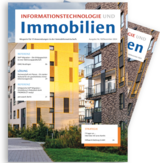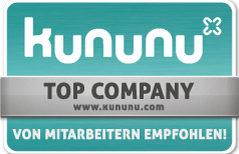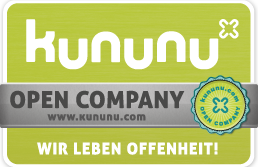Jens Kramer on networking, platforms and ecosystems – Where do we stand today and where will our journey take us?

IT&I: Jens Kramer, what is the driving motivation of your customers for tackling digitisation projects?
Jens Kramer: The central topic for many companies is the optimisation of their processes. When implementing digitisation projects, the focus should always be the added value for the customer – saving money and time, increasing quality or boosting transparency, for example. We have seen a significant increase in demand for solutions that improve communication with tenants and customers. Companies are currently investing heavily in their digital communications and in customer apps. Last year, we were able to expand the functional scope of our solutions.
IT&I: That’s bound to interest quite a few of our readers. Can you give a few examples?
Kramer: Take the neighbourhood function with its marketplace, which works kind of like eBay classified ads. We’ve had this solution up our sleeves for a long time, but now we’re also seeing the corresponding demand. In the area of tenant communications, we now have solutions in use with our customers that are really lean and lead to significant savings in terms of both effort and money. A great variety has come about over the past year, such as the translation function, a consumer marketplace offering benefits to tenants and owners, utility cost evaluations in line with the new Energy Efficiency Directive and much more.
IT&I: The amendment of the EED directive – a good topic! How is your company responding to the new requirements for the real estate industry that resulted from this?
Kramer: Managing the cost of utilities has always been a central issue for us. Driven by the new legal regulations, companies are now increasingly looking for innovative solutions. We’re looking to raise the bar in the market with our new approach and delivering a new quality for the process. In the future, customers will be able to freely decide what they do themselves and what they outsource in order to deal with utility statements more quickly and provide a much higher quality service.
IT&I: That sounds exciting! It must have a lot of potential for the future. Are there any other developments that you’re particularly proud of?
Kramer: As far as our classic SAP® consulting business is concerned, we’re pleased that SAP has made a lot of adjustments to the product – new user interfaces, revised workflow interfaces. Here we were able to raise the specialist applications we implement for customers to this high level now supported by SAP. And PROMOS has also become more international, carrying out SAP® projects throughout Europe.
IT&I: What is the current goal for developers of ERP systems?
Kramer: For the real estate industry, the offering is constantly expanding. We’re closing more and more gaps that were previously still dominated by analogue or paper processes by implementing them in an accordingly networked and integrated manner.
IT&I: What exactly does networked working mean for you?
Kramer: The focus of networked working efforts is the task of digitising previously analogue, paper-based processes. Collaborative processes that involve steps like telephone calls, sending letters or exchanging files in person are to be bundled in a digital solution. The application for this must be easy to use and offer the possibility of performing work steps from anywhere. The aim here is to create a completely new network of processes through the digitisation of various work steps. When a vacant apartment is being renovated, for example, our easysquare app enables an employee on site to decide which type of flooring is most economical based on the stored price catalogues and the future rental price. They can then select it directly in the app. This eliminates a journey through several departments with hand-written paper logs and rental-unit-related economic considerations as part of the decision-making process. For us, this is the best possible case of networked working.
IT&I: Does this also apply to interaction with tenants?
Kramer: Yes, of course. One example is the rental process. In some cases, more than a thousand applications for an advertised apartment result in unimaginable amounts of data. It is hardly feasible to transfer all this data by hand from individual application portfolios and manually arrange viewing appointments. But if you handle this with a networked solution from easysquare, potential tenants take care of this work themselves. The documents are stored electronically in the potential tenant profile and appointments are also made digitally – all bundled in one solution.
IT&I: A fine example – a solution for everyone’s needs. How do you feel about the trend of everyone shifting to platforms?
Kramer: I don’t think the added value of platform thinking is simply to be able to offer everything via an interface. A large part of the housing market is driven by small and medium-sized enterprises. They often don’t want five different apps for different application areas that are connected via interface but then all work kind of differently. Many want to talk to a single provider who offers these five apps from a single source. The advantage to this approach is that technical synergies are available then in the apps. For example, a scheduling function needs to be so universal that it can be used to arrange a repair appointment in the craftsmen app as well as a viewing appointment in the potential tenant app. In my opinion, these are the technical synergies of a platform with real added value for the customer. It’s not a matter of simply interlinking different applications. You need the highest possible technical integration of the processes.
IT&I: So you enable the customer to get everything from one source. Do you also get support from third-party providers yourself?
Kramer: Yes, we refer to this as the easysquare ecosystem, which is how we address the need to integrate further software solutions into our product environment. We use a translation function from the established provider DeepL, for instance, to offer certain service processes such as the registration of a subtenant in the easysquare tenant app in different languages and also to ensure the reverse translation of user entries. The focus for us is on the platform’s overall benefit for the customer, who simply expects a number of topics to be mapped. Of course, we could also program our own solutions for such application areas. In our opinion, however, it makes more sense to rely on widely adopted solutions from established suppliers so we can concentrate on our core competences.
IT&I: One last question. In view of the digital advances triggered by the coronavirus pandemic, one could argue that our working environments are now completely independent from the analogue world of office attendance, pens and paper notes. What do you think – is everything really going remote?
Kramer: It’s too early to claim that everything can already be done remotely, of course. It’s not like the world no longer has any desire for personal contact. From a technical point of view, sure, it’s possible to do much more work remotely than is the case in many companies today. However, there’s also nothing wrong at all with taking things one step at a time here. We’re always happy when our customers consider digitising certain processes and we’re able to support them with our product portfolio for the implementation.
IT&I: Thank you very much for the interview, Mr Kramer.
Kramer: Always a pleasure.
redaktion@openpromos.de


